All together vs. Altogether
What is the difference?
All together and altogether are two very similar expressions in the English language. How do you know when to use each one?
Although they are pronounced in the same way and there is only a small difference in their spellings, all together and altogether are not the same.
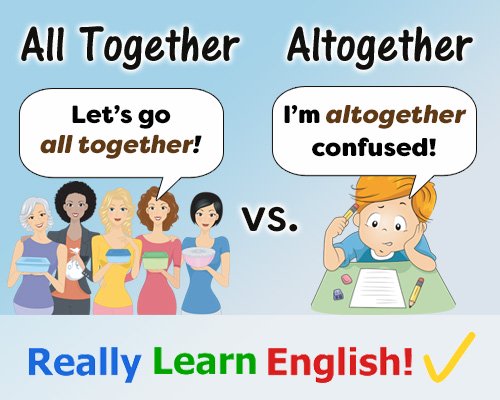
The two expressions represent different parts of speech and are used in completely different ways! Knowing when to use each one is important and is a skill that will impress even native English speakers.
Let's look at some examples to help you learn the distinction.
Click Here for Step-by-Step Rules, Stories and Exercises to Practice All English Tenses
All together
All together is an adjective that means that everyone or everything is in the same place. The opposite of all together is separately, or in different places.
Common expressions with all together are to get everything all together, which means to put a collection of objects in one place, and to get everyone all together, which means to bring a group of people together.
Examples:
- Let's go to the party all together. I don't want to arrive alone.
(Let's go to the party in a group. I don't want to arrive alone.)

- My family is going on a skiing trip all together.
(My family is going skiing in a group.)

- It took me a while to pack my suitcase, but now everything I'm bringing is all together.
(Although it took some time, now everything I need is in my suitcase.)

- Are your notes all together, or are they in separate folders?
(Are your notes in one place, or do you keep them separately?)

- I keep my makeup all together in my purse.
(I keep my makeup in my purse so as to have everything I need in one place.)

- I've been busy getting everything all together for my presentation.
(I've been busy organizing everything for my presentation.)

- My dad got the family all together to celebrate my grandma's birthday.
(My dad brought everyone in the family together to celebrate my grandma's birthday.)
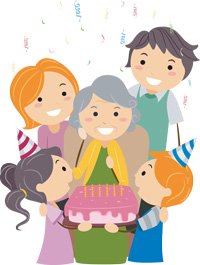
Altogether
Altogether is an adverb, which means is it a word that modifies a verb, adjective or other adverb.
The word has three different meanings:
First, altogether can be used to mean completely or totally. When used in this way, the opposite of altogether is partially.
Second, altogether means in total. When used in this way, it communicates the sum of several different parts.
Finally, altogether means in general or overall. When used in this way, altogether is a way to wrap up or conclude what a person is speaking about. Let's look at some examples.
Examples:
- Our vacation was altogether wonderful.
(Our vacation was completely wonderful.)

- I am altogether too tired to go out this evening.
(I am completely tired. There is no way I can go out tonight.)

- I'm not altogether sure what the answer is.
(I'm not totally sure of the answer.)
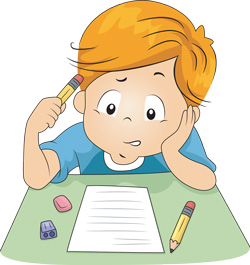
- I have $5 in bills and 50¢in coins. Altogether that makes $5.50.
(In total, I have $5.50 with me.)
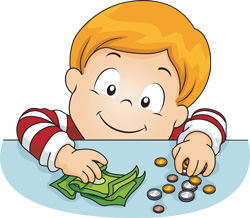
- Altogether, there were about 200 people at the wedding.
(In total, there were approximately 200 people at the wedding.)

- I spent the day at work, but altogether I really enjoyed my birthday.
(Even though I spent the day at work, overall I really enjoyed my birthday.)

- The movie was a bit long, but altogether enjoyable.
(The movie was a little long, but in general quite enjoyable.)

Tips
To remember the difference between all together and altogether, try to keep in mind that "all" is very close in meaning to "everything." The meaning of all together is very literal. All together means that everything is really together in one place!
A Story to Practice All together vs. Altogether
All together, there are four children in Henry's family. Henry has one younger sister, Emily, and one older sister, Sarah. He also has one younger brother, Mark. Henry, Emily, Sarah and Mark travel to school all together every day.
They like taking the bus all together, because the trip is altogether quite fun and enjoyable. The siblings like to laugh with their friends and usually sit all together in the back row. On the way home, they study all together too, and ask each other questions about their homework.
Henry also has a dog, Frankie. Frankie wants to take the bus all together with the children but Henry's mom says the bus driver would not be altogether happy about that idea. So Frankie usually stays home, and sometimes he goes to the park and plays all together with the other dogs in the neighborhood.
When Henry gets home, he and his family play all together with Frankie until it is time for bed. At the end of the day, they usually feel altogether pleased about the experiences they've had together. The next day, it's time to do it all over again!
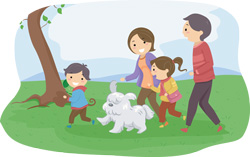
Quiz
Answer the following 10 questions and then check your answers. Each question is worth 10 points.
Part 1:
- Which of the following is a correct definition of all together?
- in the same place
- completely
- in general
- overall
- Which of the following is a correct definition of altogether?
- in the same place
- the opposite of separately
- totally
- in a group
- Which sentence is written correctly?
- I all together enjoyed the amusement park.
- Altogether, six people went to the movies.
- My family always goes on vacation altogether.
- All together, I have eleven pairs of shoes.
- Which of the following is written incorrectly?
- Are you traveling all together, or separately?
- It took me a long time to put everything all together.
- Altogether, I spent around $45.
- I'm not all together sure. Let's ask someone.
Part 2:
- __________, there are seven people in my family.
- All together
- Altogether
- Both
- Neither
- Do you and your friends take the bus __________?
- all together
- altogether
- both
- neither
- On holidays, my parents like to __________.
- get everyone all together
- have the family altogether
- enjoy the family all together
- be altogether with everyone
- Have you __________?
- gotten everything altogether
- organized all together everything
- put everything all together
- arranged everything altogether
- It was an __________ excellent day.
- all together, meaning in one place
- all together, meaning overall
- altogether, meaning in total
- altogether, meaning completely
- __________, there are eleven students in my class.
- All together, meaning in one place
- All together, meaning overall
- Altogether, meaning in total
- Altogether, meaning completely
Answer Key
Part 1: 1. A | 2. C | 3. B | 4. D
Part 2: 1. B | 2. A| 3. A | 4. C | 5. D | 6. CGet Updates, Special Offers, and English Resources
Download your FREE GIFT (the first two chapters of
English Short Stories Book and Workbook)
as soon as you join!

By submitting your email, you consent to receiving updates and newsletters from us and to the sharing of your personal data with third parties for the purposes of sending you communications. We will not spam you. You can unsubscribe at any time. For more information, please see our privacy policy.





